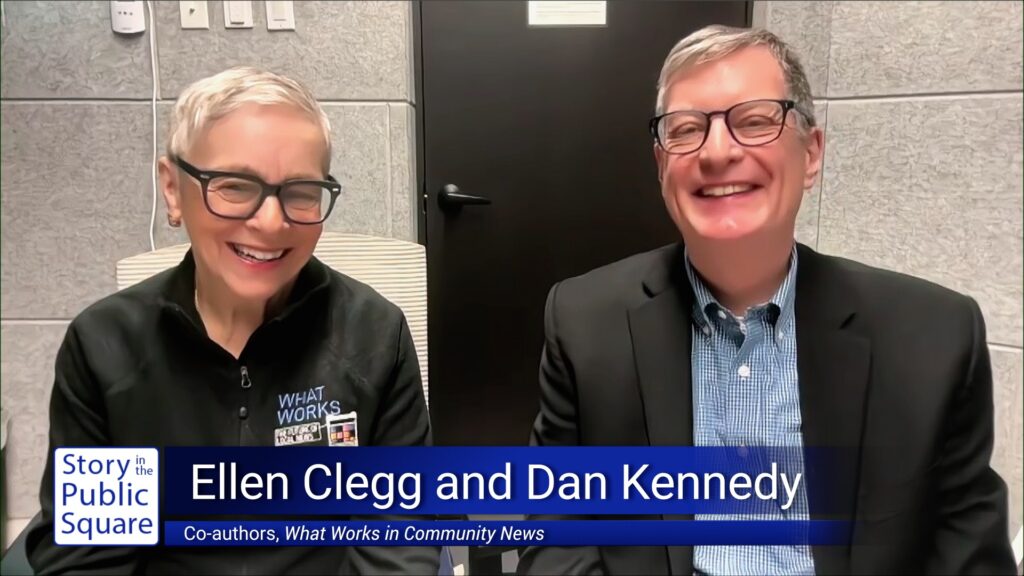News Deserts to Media Startups: Ellen Clegg and Dan Kennedy on America’s News Landscape Today
Air Dates: April 8-14, 2024
Thomas Jefferson famously said he’d prefer newspapers without government over government without newspapers. In large parts of the United States today, government exists without independent news sources—undermining accountability and diminishing civic participation. Ellen Clegg and Dan Kennedy tell us that despite these troubling trends, there’s much to celebrate in the work of community news outlets around the country.
Clegg spent over three decades at The Boston Globe and retired in 2018 after four years of running the opinion pages. In between stints at the Globe, she was deputy director of communications at the Broad Institute of MIT and Harvard. She is a member of the steering committee for the Elizabeth Neuffer Fellowship at the International Women’s Media Foundation and the co-founder and co-chair of Brookline.News, a nonprofit startup news organization. Kennedy is a Northeastern University professor in the School of Journalism and a nationally known media commentator. He was a panelist on the GBH News television program “Beat the Press” and a weekly columnist for the network. He was also a columnist for The Guardian and produces Media Nation, an online publication that serves as a media watchdog. Kennedy is a recipient of the Yankee Quill Award from the New England Academy of Journalists and the James W. Carey Journalism Award from the Media Ecology Association.
On this episode of “Story in the Public Square,” Clegg and Kennedy discuss their new book “What Works in Community News: Media Startups, News Deserts, and the Future of the Fourth Estate.” The pair dive into various subjects centering around the news landscape, such as the decline of print media. Clegg describes this issue, saying “there are two key factors coming into play here. One is the collapse of print advertising, especially classified ads. The second factor is what might be called corporate greed, chain ownership, Gannett coming in and scooping up papers.” They also discuss the negative effects of having communities left without a reliable source of local news and information. Kennedy says, “Voter turnout goes down. The number of people running for political office goes down. There’s what you might call a corruption tax, where communities without a reliable source of news have to pay a higher interest rate. But probably the most prominent deleterious effect of all this is that news becomes nationalized. People want news, and they’re gorging on national news.”
“Story in the Public Square” broadcasts each week on public television stations across the United States. A full listing of the national television distribution is available at this link. In Rhode Island and southeastern New England, the show is broadcast on Rhode Island PBS on Sundays at 11:00 a.m. and is rebroadcast Thursdays at 7:30 p.m. An audio version of the program airs Saturdays at 8:30 a.m. and 7:30 p.m. ET, Sundays at 5:00 a.m. and 10:00 p.m. and Mondays at 2:30 a.m. ET on SiriusXM’s popular P.O.T.U.S. (Politics of the United States), channel 124. “Story in the Public Square” is a project of the Pell Center at Salve Regina University. The initiative aims to study, celebrate and tell stories that matter.

